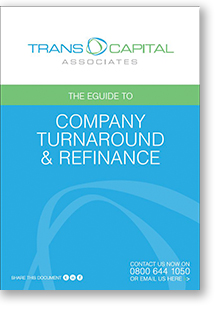 Planning a turnaround strategy can feel like a lonely task. There are so many options to consider and a wide range of actions you need to take just to get your house in order before you can even start making any changes. We’ve talked about them in our eBook, Guide to Company Turnaround and Finance and in many of our blogs. Two of the most important elements to get right are:
Planning a turnaround strategy can feel like a lonely task. There are so many options to consider and a wide range of actions you need to take just to get your house in order before you can even start making any changes. We’ve talked about them in our eBook, Guide to Company Turnaround and Finance and in many of our blogs. Two of the most important elements to get right are:
- Positioning yourself so that you’re able to respond quickly and sensibly to the external environment
- Ensuring that employee engagement during the turnaround is a top priority
Interestingly, in the past week, we’ve seen one of the biggest turnaround situations ever – that of the UK economy – deal quite differently with these two points.
The Eurozone – Do we want to be in or out?
Has David Cameron just performed a masterstroke, or is he simply shooting from the hip? It can hardly be stated that the Eurozone was the most pressing issue of the day. How many people genuinely understand the benefits and disadvantages of us being involved in either the EU or even the Eurozone? It seems that if it comes to a vote (which I doubt) it will be based on anecdotal evidence and sentiment!
But Cameron’s power is predicated on the support of the Lib Dems and of his backbenchers, many of whom are Euro sceptics (or worse). So, despite serious issues with the economy, health, schools, justice, social welfare, the armed forces, crime etc., it seems the focus is transferring to whether we are in or out. The political parties are nailing their colours to the mast and almost betting their futures on it. The Eurozone is fast becoming the issue of the next election!
Given that situation here at home, perhaps Cameron can use this policy decision to improve our relationship with Europe, decreasing both our financial commitment and the powers of Brussels bureaucrats to impose their laws on the UK? Could it be that he has seen a greater national good that can come out of his internal party politics?
One French minister said the UK joined up to play Football, but now wants to play Rugby! The point he is missing (sticking with the football analogy) is that Europe is no longer receiving an injection of Sky money, but it’s still paying the same huge wages and transfer fees. Maybe it’s not so unreasonable for us to renegotiate?
This situation is exactly the same as for all our businesses, just on a larger scale. We need to continually be reviewing the external environment to ensure we’ve got an up-to-date business management strategy that continues to enjoy shareholder (or voter?) support while growing and improving the business!
Conflicting messages – Mervyn King’s speech in Belfast
In a recent speech in Belfast, Mervyn King gave a whole load of conflicting signals to his audience and the wider business community.
First, he called for a review of the inflation target, and then just a few moments later, quashed this by saying that a long term target of 2% is essential!
He then talked about the very slow recovery in the economy, and said they were ready to pump in more Quantitative Easing if necessary. By contrast, if you look at the minutes of the last Monetary Policy Committee meeting, it’s clear that the committee is virtually unanimous in their support for no more QE! Yet another contradiction from within those minutes of the MPC is that they suggest the UK’s exchange rate is too high, which would also imply more QE!
In addition, despite the dire situation the economy is in, recent jobs figures show unemployment down to 2.49m and fulltime workers up 113,000.
So it seems the governor of the BoE is sending out mixed messages to the markets. While, paradoxically, the FTSE has continued to perform well this week, the Markets – like people – hate uncertainty!
Again, this is a lesson for all of us in business in terms of developing a turnaround strategy: ensure you’ve got the correct strategy in place and then communicate it clearly and effectively to your workforce so there is no confusion or misunderstanding about the goals you are trying to achieve. This is something the Governor failed to achieve.
Both of these “real world” examples are simply an illustration of the similarities between the complexities faced by organisations of any size. Whilst the UK economy and the decision about the Eurozone are the supertankers that will take some time to turn toward the right direction, with the right turnaround strategy and planning, your business can be more flexible and more successful.
I’d be interested to hear your thoughts about these latest examples in the turnaround of the UK economy.
Image by: GraphicReality

